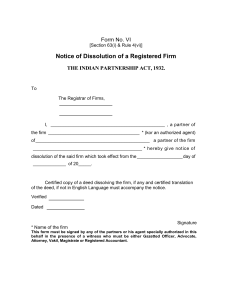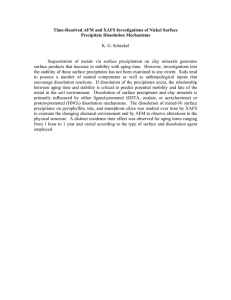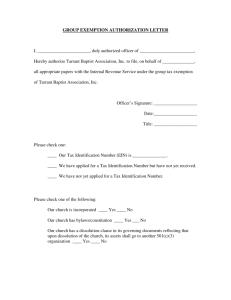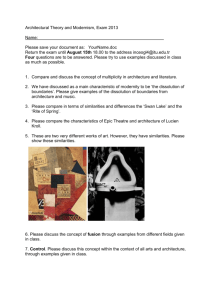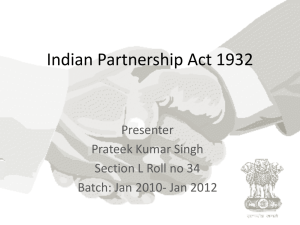Ortega v. Court of Appeals, G.R. No. 109248, July 3, 1995
advertisement
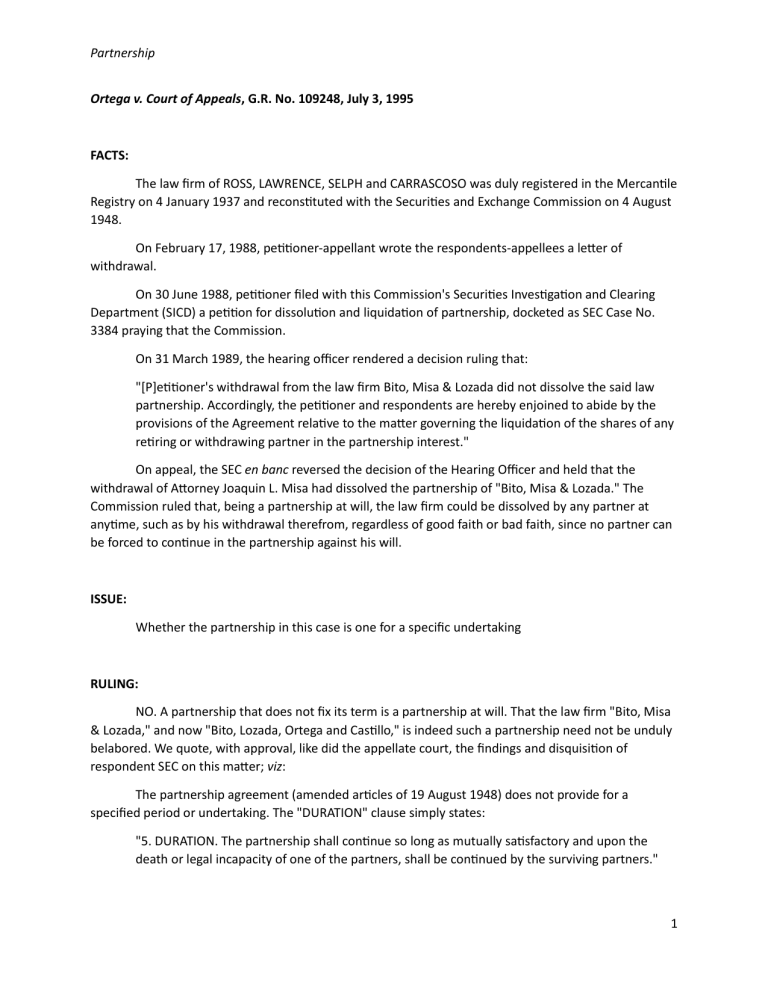
Partnership Ortega v. Court of Appeals, G.R. No. 109248, July 3, 1995 FACTS: The law firm of ROSS, LAWRENCE, SELPH and CARRASCOSO was duly registered in the Mercantile Registry on 4 January 1937 and reconstituted with the Securities and Exchange Commission on 4 August 1948. On February 17, 1988, petitioner-appellant wrote the respondents-appellees a letter of withdrawal. On 30 June 1988, petitioner filed with this Commission's Securities Investigation and Clearing Department (SICD) a petition for dissolution and liquidation of partnership, docketed as SEC Case No. 3384 praying that the Commission. On 31 March 1989, the hearing officer rendered a decision ruling that: "[P]etitioner's withdrawal from the law firm Bito, Misa & Lozada did not dissolve the said law partnership. Accordingly, the petitioner and respondents are hereby enjoined to abide by the provisions of the Agreement relative to the matter governing the liquidation of the shares of any retiring or withdrawing partner in the partnership interest." On appeal, the SEC en banc reversed the decision of the Hearing Officer and held that the withdrawal of Attorney Joaquin L. Misa had dissolved the partnership of "Bito, Misa & Lozada." The Commission ruled that, being a partnership at will, the law firm could be dissolved by any partner at anytime, such as by his withdrawal therefrom, regardless of good faith or bad faith, since no partner can be forced to continue in the partnership against his will. ISSUE: Whether the partnership in this case is one for a specific undertaking RULING: NO. A partnership that does not fix its term is a partnership at will. That the law firm "Bito, Misa & Lozada," and now "Bito, Lozada, Ortega and Castillo," is indeed such a partnership need not be unduly belabored. We quote, with approval, like did the appellate court, the findings and disquisition of respondent SEC on this matter; viz: The partnership agreement (amended articles of 19 August 1948) does not provide for a specified period or undertaking. The "DURATION" clause simply states: "5. DURATION. The partnership shall continue so long as mutually satisfactory and upon the death or legal incapacity of one of the partners, shall be continued by the surviving partners." 1 Partnership The hearing officer however opined that the partnership is one for a specific undertaking and hence not a partnership at will, citing paragraph 2 of the Amended Articles of Partnership (19 August 1948): "2. Purpose. The purpose for which the partnership is formed, is to act as legal adviser and representative of any individual, firm and corporation engaged in commercial, industrial or other lawful businesses and occupations; to counsel and advise such persons and entities with respect to their legal and other affairs; and to appear for and represent their principals and client in all courts of justice and government departments and offices in the Philippines, and elsewhere when legally authorized to do so." The "purpose" of the partnership is not the specific undertaking referred to in the law. Otherwise, all partnerships, which necessarily must have a purpose, would all be considered as partnerships for a definite undertaking. There would therefore be no need to provide for articles on partnership at will as none would so exist. Apparently what the law contemplates, is a specific undertaking or "project" which has a definite or definable period of completion. The birth and life of a partnership at will is predicated on the mutual desire and consent of the partners. The right to choose with whom a person wishes to associate himself is the very foundation and essence of that partnership. Its continued existence is, in turn, dependent on the constancy of that mutual resolve, along with each partner's capability to give it, and the absence of a cause for dissolution provided by the law itself. Verily, any one of the partners may, at his sole pleasure, dictate a dissolution of the partnership at will. He must, however, act in good faith, not that the attendance of bad faith can prevent the dissolution of the partnership but that it can result in a liability for damages. In passing, neither would the presence of a period for its specific duration or the statement of a particular purpose for its creation prevent the dissolution of any partnership by an act or will of a partner. Among partners, mutual agency arises and the doctrine of delectus personae allows them to have the power, although not necessarily the right, to dissolve the partnership. An unjustified dissolution by the partner can subject him to a possible action for damages. The dissolution of a partnership is the change in the relation of the parties caused by any partner ceasing to be associated in the carrying on, as might be distinguished from the winding up of, the business. Upon its dissolution, the partnership continues and its legal personality is retained until the complete winding up of its business culminating in its termination. The liquidation of the assets of the partnership following its dissolution is governed by various provisions of the Civil Code; however, an agreement of the partners, like any other contract, is binding among them and normally takes precedence to the extent applicable over the Code's general provisions. 2

